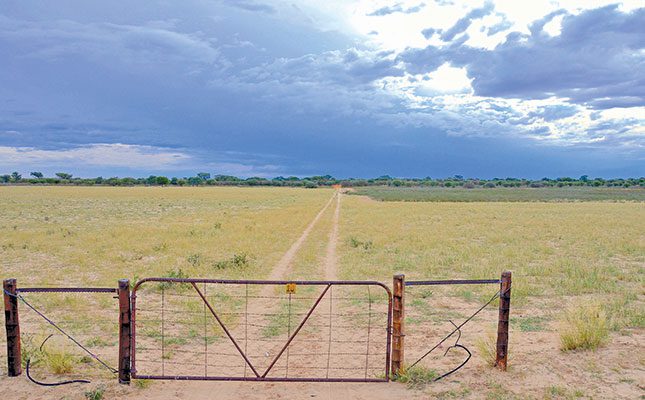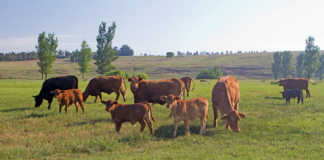
Photo: Wikimedia Commons
The scourge of attacks and subsequent loss of life faced by the farming community across the country continues unabated. This is largely because the South African Police Service (SAPS) does not have the manpower or resources to offer protection; instead, it provides mainly reactive policing.
To ensure the safety of farmers and farmworkers requires a proactive approach. Most farm attacks, like criminal acts in general, catch victims by surprise, and they therefore have little or no time to call for help or backup. The best solution, then, is for farmers to help themselves as a community. To repeat: the critical factor is to be proactive rather than reactive.
Define the area to be safeguarded
As a first step, nominated farmers and role players need to map out a ‘security district’ and conduct an in-depth risk assessment of the area. As part of this, they should capture the personal details of every resident or worker in the district on a secure, centralised database with off-site backup.
It is extremely important that all farmers in the region participate in the overall project; if some do not, the entire project will be in jeopardy, as these farmers will be the weak links in the chain. It is just as important to involve other support services, such as the SAPS, metro police, civil authorities, established security companies, local businesses, local chiefs and indunas, and union bosses.
Each member of the project must have the necessary equipment to be able to communicate with the others via a messaging system, and gain access to the main database in order to obtain personnel and other regional information.
It is worth repeating that the full buy-in and co-operation of all farmers is paramount, as they are the prime target of criminals. In addition, the response team will require farmers’ authority and support to be successful.
Other requirements include, but are not limited to, the following:
- A rapid mobile reaction unit that can respond to incidents;
- The use of drones to gather information and identify activity (see FW, 21 April 2023);
- The fitting of GPS tracker units to all vehicles;
- Ensuring that all vulnerable persons carry remote alarm and panic buttons;
- Weapons training: how, when and whether to use firearms;
- First-aid trauma training and response;
- Training in the effective and safe handling of cash and wages on the farm or business premises.
Identifying the problem
Attacks on farms and smallholdings refer to acts aimed at residents, workers and visitors, whether with the intent to murder, rape, rob or inflict bodily harm. In addition, all actions aimed at disrupting commercial farming activities, whether for motives related to ideology, labour disputes, land issues, revenge, grievances, racist concerns or intimidation, should be included.
According to Ian Cameron, director of Action Society, there has been a significant increase in attacks since 2019, which indicates the inability of the SAPS to prevent violent crimes on farms.
Victims are often overpowered, ambushed or surprised on their farms, and attackers frequently gain entry by breaking open farm gates, security doors, burglar bars, doors or windows, or simply walking or climbing through doors or windows left open.
According to SAPS data, those over the age of 60 are more likely to be attacked on a farm.
Prosecution of suspects remains a problem, with only around 20% of reported incidents eventually leading to the arrest of suspects. The backlog of the administration and analysis of forensic evidence, such as DNA samples, is also a major challenge to the successful prosecution of attackers.
The what and why of farm attacks
In order to counter an attack against a farm, farmer or farmworker, it is necessary to understand how the attacker approaches the target or victim. Attackers are generally single-minded in their approach, which may be based on false information, poverty, or other factors.
As the motivation for the attack differs from incident to incident, there is no one solution to the problem. Farmers and even farmworkers should learn to analyse the risks and threats specific to them (taking time and distance into account as well), in order to counter any attack as best as possible.
According to various sources, around 83% of attacks are perpetrated by attackers who are known to their victims. In this case, the victim is at even more of a disadvantage, as the perpetrator may have information about the victim that a stranger may not have.
There are various factors to consider when planning security measures or a response plan. First, consider that the attack has probably been well planned. The attackers may have gathered intimate knowledge of the victims, such as their daily routines. In these kinds of attacks, perpetrators will conduct surveillance and note the routine of the farm and its inhabitants.
Second, take note of any unusual vehicles or persons around the farm or homestead, or of any suspicious activity, whether amongst farm residents or strangers. Record the licence plate information of any suspicious vehicle.
Third, consider that perpetrators often have a detailed execution and escape plan, are most likely to attack in groups of four to six, and may all be armed. As the perpetrators will have elevated adrenaline levels and may even be high on illegal drugs, don’t expect that an ordinary response to the situation will have any effect on their actions.
Remember that during an attack you may be fighting for your life. While victims are often told to do what the attackers say, you need to analyse the situation.
Will the attackers let you go after they have robbed you? Some victims have escaped serious injury and even death by resisting the attackers and not showing any weakness. Your reaction in this regard, unfortunately, can only be decided during an attack.
If you are forced to drive a vehicle to the bank or as part of the attackers’ getaway, take your first opportunity to crash the vehicle into a property or ditch. It will take the attackers by surprise and may cause them to panic. It will also disable the vehicle.
If you are locked in the boot of a car and cannot activate the internal lock mechanism, kick out the tail lights and wave your hands out of the vehicle to attract attention.
Firearms and the law
South African legisation governing the use of a gun in self-defence is complex and difficult for a layman to understand. The moment that the victim discharges a weapon towards a person, a charge of attempted murder or murder will be opened automatically by the police.
It is now up to the victim to prove to the police or a court of law that he/she acted in self-defence and had no other choice but to fire the weapon. There are many non-lethal self-defence weapons on the market. If you are trained in their use, and understand your situation before or during the attack, you may be able to repel the attackers or defend yourself using these kinds of weapons.
Firearms and cash are the most sought-after commodities. The mere presence or suspected presence of a firearm or cash can be a motivation for the attack.
Round-the-clock vigilance
You and your employees are restricted by the normal functioning of a busy farm. People have routines, routes, movements, and good or bad habits, all of which are a disadvantage to self-protection. Then there are the restrictions of the law, as discussed above.
The attackers, by contrast, have no restrictions whatsoever. They choose the time and place of the attack as it suits them and their objectives. They therefore have the initiative at all times. The potential victim has to be 100% alert and prepared 24 hours a day; the attacker only needs a five-minute gap.
Bearing this in mind, it is essential that farmers and farmworkers take safety and security into their own hands and stay vigilant. Many security professionals say that the single most important piece of advice they can give to farmers is to be aware of their surroundings at all times. Awareness leads to logical thinking processes and effective results.
In addition to this, the more secure a property is, the less likely it is to fall victim to attackers.
Laurence Palmer is an independent security consultant with approximately 25 years in the business. Before that, he held a senior command post in the South African National Defence Force, where he worked closely with the farming community with the sole objective of keeping farms and farmers safe. Email him at [email protected].











